- About Archives
- About SAA
- Careers
- Education
- Publications
- Advocacy
- Membership
Vice Chair / Chair Elect (1 position)
Steering Committee (2 positions)
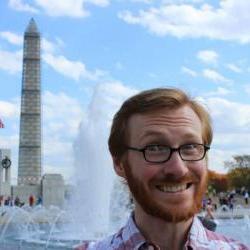
Matthew Farrell
Statement:
The Electronic Records Section comprises a cross section of archives professionals from different backgrounds, be it technical services, collection development, or research services. As such, the ERS directly relates to each of the core archival functions. The past two to three years has seen the profession coalesce around general principles, and it is now incumbent on the ERS to provide input on how individual institutions adapt these best practices to their own workflows and activities. As vice-chair of the ERS, I hope to facilitate an ongoing dialogue around the issues most pressing to incorporating digital objects into archival workflows. In this manner, I also hope to assist members determine appropriate methods for the appraisal and description of, as well as access to, digital objects and electronic records in their home institutions.
Bio:
Matthew Farrell is the digital records archivist for the Duke University Archives and David M. Rubenstein Rare Book & Manuscript Library. In this capacity, he is responsible for the acquisition, management, and delivery of born digital materials from the various collections and research centers of the Rubenstein Library. Prior to this, he served as records services archivist at Brown University and ingest technician for the Carolina Digital Repository. He holds an MSLS from the University of North Carolina at Chapel Hill.
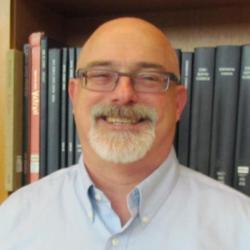
Dan Noonan
Statement:
Some time ago, while participating in a symposium on electronic records, I was struck by the realization that I needed to stop waiting for the “silver bullet” solution for managing and preserving technology dependent, electronic/digital records. Instead of trying to slay the “Enterprise Beast” I needed to find the thorns to pull from the beast’s feet—i.e. I should concentrate on finding incremental, focused solutions. I believe that one of the best ways we, as a Section, can support our colleagues within the archival community and our workplace organizations is to identify and share practical, implementable steps to more adequately manage and preserve electronic/digital records. This is the perspective I would bring as a leader in the Electronic Records Section. Thank you for considering my candidacy and apologies for the mixed metaphors.
Bio:
Dan Noonan is an Assistant Professor and the e-Records/Digital Resources Archivist at The Ohio State University. Reporting to the University Archivist, in collaboration with the Office of the CIO and other campus units, he assists in the design, evaluation, and implementation of electronic recordkeeping systems; provides counsel to academic and administrative offices in electronic records management and preservation best practices; and develops strategies for long-term preservation and access to electronic records and digital objects of enduring value. Dan has previously served on the Electronic Records Section Steering Committee from 2007 through 2010 and has been the Section’s liaison to the Standards Committee since 2011. He is starting his third term on the Ohio Historical Records Advisory Board and is Past Chair of the Ohio Electronic Records Committee. Prior to joining OSU, he was the Supervisor for Electronic Records Management for the State of New Jersey and the Digital Documents Librarian for the New Jersey Institute of Technology.
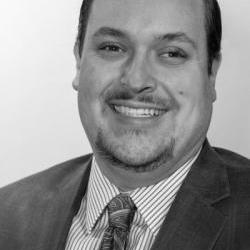
Tyler G. Cline
Statement:
With the amount of born-digital material growing at quite literally an exponential rate, we need radically new methods of keeping pace with this evolution. As much as 90% of the world's data since the dawn of recorded history has been generated in the last few years, and we as archivists need to think beyond MPLP for the scale of our operations. I am running for a seat on the steering committee because I believe that the challenges of electronic records must be met not only by the innovation and determination of archivists, but with the input of best minds of technologists, futurists, and the global community.
Bio:
Tyler Cline is the digital archivist at the University of Wyoming's American Heritage Center, where he oversees the born-digital and mass digitization programs. His responsibilities include developing workflows for the appraisal, ingest, and description of born-digital records, as well as the arrangement and preservation of existing born-digital holdings. Previously, Tyler was an archivist in Anchorage, Alaska. He received his MA in Public History with a concentration in Archives Administration from CSU Sacramento.
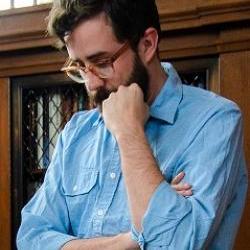
Lawrence Giffin
Statement:
Of all the issues that have come up in my conversations with other archivists, especially those of us in the early stages of our careers, one need in particular has been consistently expressed: the need for education—practicable and technical education directed specifically to archivists and cultural heritage professionals. I’ve found that many find that much conference or workshop instruction around digital preservation can be too abstract and too difficult to translate into practice. The Society of American Archivists, and the Electronic Records Section in particular, is the organization with the resources and responsibility to ensure that current and future candidates in archival graduate programs and practicing archivists looking to improve their knowledge and skills. SAA has already had success in developing curricula and promoting continuing education in digital preservation, and I think the ERS could take the initiative in seeking input from the community and providing clear and specific guidance to SAA.
Bio:
Lawrence is currently Electronic Records Archivist for the State Archives of North Carolina, where he manages the ingest and preservation of born-digital government records and directs the planning and implementation of a repository for the electronic records of state and local agencies in North Carolina. He also runs the web- and social-media-archiving program for state and local agencies, presents e-records management trainings to state employees, and provides digital support to the various departments of the State Archives and State Library. He serves on the Education Subcommittee of COSA’s State Electronic Records Initiative (SERI). Previously, he was Records Services Archivist at the University of North Carolina at Chapel Hill, where he provided records management services to the campus community; maintained and updated the university’s retention schedule; and oversaw the transfer and accessioning of the university’s public, archival records.
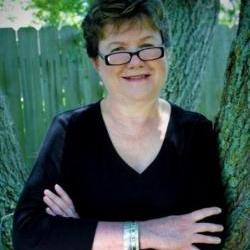
Rebecca Schulte
Statement:
Due to the size and complexity of SAA, roundtables and sections play a vital role in the professional and conference experience for archivists. The sections particularly can be a place where new archivists and more experienced archivists alike can more easily make contacts and hear about issues that are of current interest. Communication is key and in August 2013 the SAA Communications Task Force presented a final report with recommendations for sections and roundtables with intent towards establishing a set of “best practices”. I’m assuming all steering committees will be reviewing the report and determining with their memberships how to best implement suggested changes. I view this as an opportunity to evaluate our own communication profile to the benefit of our members.
Bio:
Becky Schulte is currently University Archivist at the University of Kansas where her responsibilities include raising the profile of the digital collections at KU. She is past chair of the College and University Archives section and is a member of the SAA Membership Committee. In 2004 she was awarded a National Historic Publications and Records Commission Electronic Records Research Fellowship. At the University of Kansas she is a member of the KUScholarWorks (institutional repository) Advisory Group and has served on the KU Task Force on Digital Preservation, the University Senate Committee on Academic Computing and Telecommunications and the KU Information Management Policy Group. She currently serves on the Kansas Historical Society National Digital Newspaper Program Grant Advisory Board and the Kansas Electronic Records Committee.
Jane Zhang
Statement:
Electronic records management/archives have been the focus of my teaching and research for the past six years. My recent research on the landscape survey of electronic records and digital archivists shows that since 2011, electronic records and digital archivist positions posted by archival institutions have been steadily growing. As an archival educator, I firmly believe collective expertise of this growing professional group will bring changes to archival theory, practice and education. As a member of the Steering Committee, I’ll work with ERS members to explore opportunities of collaboration, experimentation, and knowledge generation and dissemination.
Bio:
Jane Zhang is an assistant professor at the Department of Library and Information Science, Catholic University of America, where she teaches Archives Management, Digital Curation, Electronic Records and Digital Archives. Jane holds a PhD in Library and Information Studies with archival concentration from Simmons College, Boston, and a joint Master of Archival Studies & Library and Information Studies from University of British Columbia, Canada. Before joining the faculty at the Catholic University, Jane worked at the Harvard University Archives and the University of Calgary Archives.
Thank you for sharing this detailed information about the Electronic Records Section election. It’s always inspiring to see professionals dedicated to improving digital preservation practices and governance within archival institutions. I recently came across some interesting parallels while reading about metro by tmobile — how digital transformation and accessibility are reshaping how organizations handle data and communication. It’s fascinating to see similar innovations influencing the archival field as well.